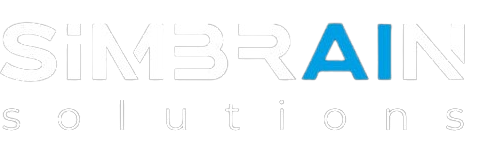UNIVERSITY MANAGEMENT SYSTEM

UNIVERSITY SYSTEM MANAGEMENT
Our University Management System is designed to improve the efficiency and effectiveness of university operations by automating and streamlining administrative tasks, reducing errors, and providing real-time access to information. It can also improve communication and collaboration among different departments and stakeholders within the university.
AUTOMATION AND STREAMING
University management systems automate and streamline administrative tasks, reducing the time and effort required to manage student data and other administrative functions.
IMPROVED EFFECIENCY
University management systems provide real-time access to information, enabling administrators to make informed decisions quickly and efficiently.
DATA ACCURACY
By centralizing student data and other administrative functions, university management systems help to reduce errors and ensure data accuracy.
IMPORVED COMMUNICATION
University management systems improve communication and collaboration among different departments and stakeholders within the university, leading to better coordination and more efficient operations.
ENHANCED STUDENT EXPERIENCE
University management systems improve the overall quality of education and services offered by universities, leading to a better student experience.
COST SAVINGS
By reducing administrative costs and improving efficiency, university management systems can help universities save money.
SCALABILITY
University management systems are designed to be scalable, meaning they can handle growth and accommodate new functionalities as needed.
MODULAR UMS
Student Information System
it includes a variety of units that handle different aspects of student information. These units typically include features such as: Admissions, Registration, Grading, Student Records, Course evaluation, Accounting, Report Engine, Financial Aids.
Human Resources
This module manages the information and functions related to the university staff and faculty members. The HR module includes features for managing employee information (personal details, job titles, employment status, and work history), employee evaluations, promotions, disciplinary actions, payroll (calculating employee salaries, tracking hours worked, and managing tax and other deductions), benefits (vacation and health insurance). It also manages the recruitment process with all its related data.
Inventory Management
This module involves managing a wide range of physical assets, such as textbooks, laboratory equipment, and office supplies. Such a service ensure that the university has the necessary resources on hand to support its operations and academic programs.
Exams Management
This module manages the exam process that includes the exam schedule, the proctoring, the exams report, and the exams archiving process.
Rooms Management
This module manages all rooms of the university. It allows an optimal distribution of the offered courses over the rooms given the capacity of the room and the number of students in the sections. It also manages the reservation of the meeting rooms, the library, and the classrooms.
IT Ticketing
his module enables to manage and track service requests and incidents from the users. It allows the users to submit tickets, and for IT staff to prioritize, assign, and resolve them

Intellisense
Debugging
git Built-in
Extensions

FAST FORWARD THINKING
DATA ANALYTICS
PERFORMANCE
the sudent performance including grades, attendance, and participation
RETENETION
The student retention which can help the university identify students who are at risk of dropping out or failing to graduate on time, and thereby develop targeted interventions to support struggling students and improve retention rates.
ALLOCATION
The resource allocation by well allocating the resources in an optimized way, such as classroom space and faculty time which ensure that resources are being used efficiently.
ENROLLEMENT
The course enrollment and student interests, to inform the developers of new programs and courses to better meet the needs of students and the job market.

streamline code
Our data analytics can help the university optimize their enrollment management strategies, including recruiting new students, retaining current students, and managing financial aid. By analyzing data on enrollment trends, student demographics, and financial aid usage, the university can develop more effective strategies for attracting and retaining students. In addition,
our data analytics can be used to optimize facility usage, including classroom scheduling, maintenance, and energy usage. By analyzing data on classroom usage, building occupancy, and energy consumption, universities can identify opportunities to reduce costs and improve efficiency.

